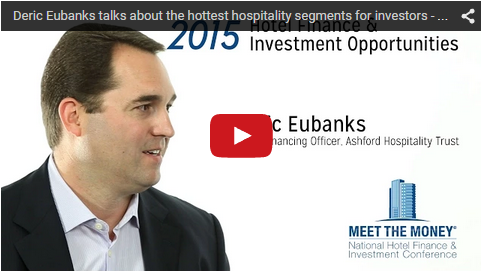Alice Gao, Senior VP of ICBC USA, speaks with Bob Braun, senior member of JMBM’s Global Hospitality Group® at JMBM’s 2016 Meet the Money® – the national hotel finance and investment conference. Alice explains the structure of ICBC USA, discusses interest rates, and Chinese immigrant investment in U.S. gateway cities.
A transcript follows the video. See other videos in this series on the Jeffer Mangels YouTube channel.
Bob Braun: I’m here with Alice Gao, who’s a Senior Vice President of ICBC USA. Alice, thank you very much for coming and spending a little time with us today.
Alice Gao: Thank you very much.
Bob Braun: Alice, I’d like to ask a few questions which I think you’re very suited to in your position with ICBC. One question I’d like to ask is, what kind of projects are the bank most interested in lending to these days? Are there things that attract you more than others, or are more interested in than others these days?
Alice Gao: Well, let me just start with a brief introduction of our bank. I’m very excited that as of December 2015, the bank continues to be ranked as the number one largest bank in the world by total assets of $3.6 trillion, and also as number one on tier one capital, about $215 billion. We are also ranked number one by net profit of $44 million. So, with that, in the U.S., we have four financial institutions. So, the four together provide a full array of products and services. The first financial institution is ICBC Financial Services: it’s a broker dealer of security services. And we also have ICBC Standard Bank, which is a financial market and commodity bank based in New York. We also have ICBC New York Branch, which is a wholesale bank of ICBC Group. And lastly we have ICBC USA, a Federal Charter full licensed bank, FDIC insured.
So, ICBC USA has thirteen branches and one service center. We have three branches in New York, ten branches in California, one service center in Seattle. Together with these four financial institutions, physical locations and e-banking platform, we offer not only traditional deposits and loan services, we also offer a variety of products such as cash management, trade finance, treasury and also foreign exchange. Our strongest point to distinguish us from others is we do offer variety of services of onshore and offshore renminbi products.
Bob Braun: So most of the lending that you would do on hotels is through ICBC?
Alice Gao: Most of the lending for hotels is through ICBC New York Branch and ICBC USA.
Bob Braun: And in terms of the type of lending you’re doing, does ICBC have any current priorities or any current trends that it sees? CONTINUE READING →





